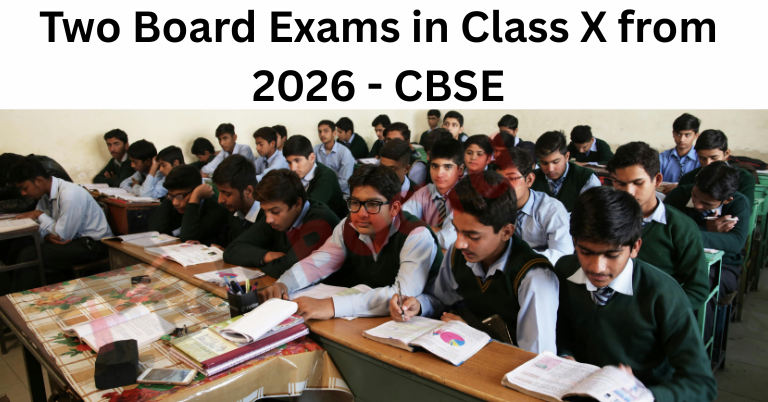Home / UP Board / UP Board vs CBSE Board – Which is Better for the Future?
UP Board vs CBSE Board – Which is Better for the Future?
Compare UP Board and CBSE Board on syllabus, medium, exams and career scope. Find out which is better for your child’s future in 2025 and beyond.

Choosing the right education board can significantly impact a student’s academic journey and career prospects. In India, two of the most common education boards are the UP Board (Uttar Pradesh Madhyamik Shiksha Parishad) and the CBSE Board (Central Board of Secondary Education). Both offer quality education, but their approach, structure and scope differ greatly. This blog explores key differences to help you make an informed decision.
What is the UP Board?
The UP Board is managed by the Government of Uttar Pradesh and is one of the largest state boards in India. It is widely followed in the state and is known for providing low-cost education, especially in rural areas.
Key Features:
- Medium: Mostly Hindi
- Syllabus: State-level (now NCERT-aligned)
- Focus: Theoretical learning
- Popular for: State government job aspirants
UP Board exams tend to be more traditional in style, with direct questions based on textbooks. It’s suitable for students comfortable in Hindi and those planning to stay within the state for higher studies or jobs.
What is the CBSE Board?
The CBSE Board, under the Central Government, is a national-level board followed by schools across India and abroad. It is especially known for preparing students for national competitive exams.
Key Features:
-
Medium: English and Hindi
-
Syllabus: NCERT-based, updated regularly
-
Focus: Conceptual and practical learning
-
Popular for: JEE, NEET, CUET aspirants
CBSE encourages a more modern, interactive style of learning and continuous assessments. It’s ideal for students aiming for national-level opportunities and higher education.
UP Board vs CBSE Board – Key Differences
Here’s a clear side-by-side comparison:
| Feature | UP Board | CBSE Board |
|---|---|---|
| Managing Body | Uttar Pradesh Government (UPMSP) | Central Government (CBSE) |
| Medium of Instruction | Mainly Hindi | English and Hindi |
| Syllabus | State-level (now NCERT-aligned) | NCERT-based, national-level |
| Focus | Theoretical knowledge | Conceptual and practical learning |
| Exam Pattern | Traditional, textbook-based | Structured, includes internal assessments |
| Competitive Exam Ready | Less aligned, needs extra coaching | Highly aligned (JEE, NEET, CUET) |
| Recognition | State-level recognition | National & international recognition |
| School Availability | Mostly in Uttar Pradesh | Across India and abroad |
| Private School Fees | Lower | Moderate to high |
Competitive Exam Readiness
If your child is planning to appear in competitive exams like JEE, NEET, CUET, NDA etc. CBSE is the better choice. The curriculum is closely aligned with these exams, giving students an edge.
The UP Board syllabus, while now more aligned with NCERT, still requires additional coaching to reach the level of national exams. Students from UP Board often excel but need extra effort and resources.
Medium of Instruction and Language Comfort
UP Board schools primarily use Hindi as the medium of instruction. This is beneficial for students from rural or Hindi-speaking backgrounds making learning easier and more relatable.
On the other hand, CBSE schools often use English especially in urban areas. This helps students build strong communication skills which is useful for higher education and global opportunities.
Recognition and Career Scope
CBSE Board certificates are widely recognized across India and abroad. They are often preferred by top universities and companies, especially in English-speaking regions.
UP Board certificates are accepted for admissions and jobs within Uttar Pradesh and some other states. However, for national or international careers, CBSE may offer broader exposure and credibility.
Which One Should You Choose?
Choose UP Board if:
-
Your child is more comfortable in Hindi.
-
You’re looking for affordable education.
-
Your focus is on state-level government jobs or colleges.
Choose CBSE Board if:
-
Your child plans to take national-level entrance exams.
-
You want an English-medium education.
-
You’re looking for flexibility in career and education options across India or abroad.
Newsletter
Subscribe to our newsletter and get our newest updates right on your inbox.
Latest News
-

NIOS Admission 2024-25 (Class 10th & 12th): Last Date, Fees, How to Apply
- 3 days ago
- 0 Comments
-

Two Board Exams in Class X from 2026 - CBSE
- 3 days ago
- 0 Comments
-

UP Board Affiliation 2025: Last Date Extended Till 30th June
- 3 days ago
- 0 Comments





Comments